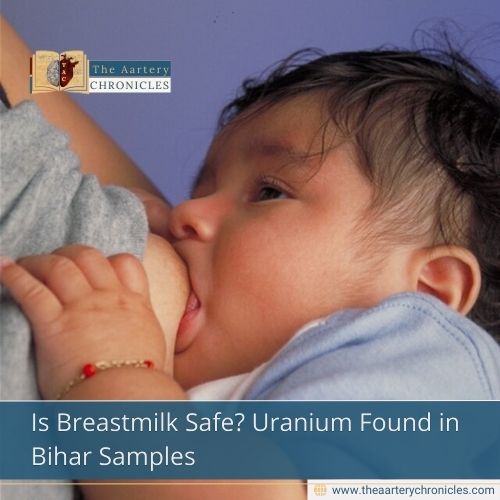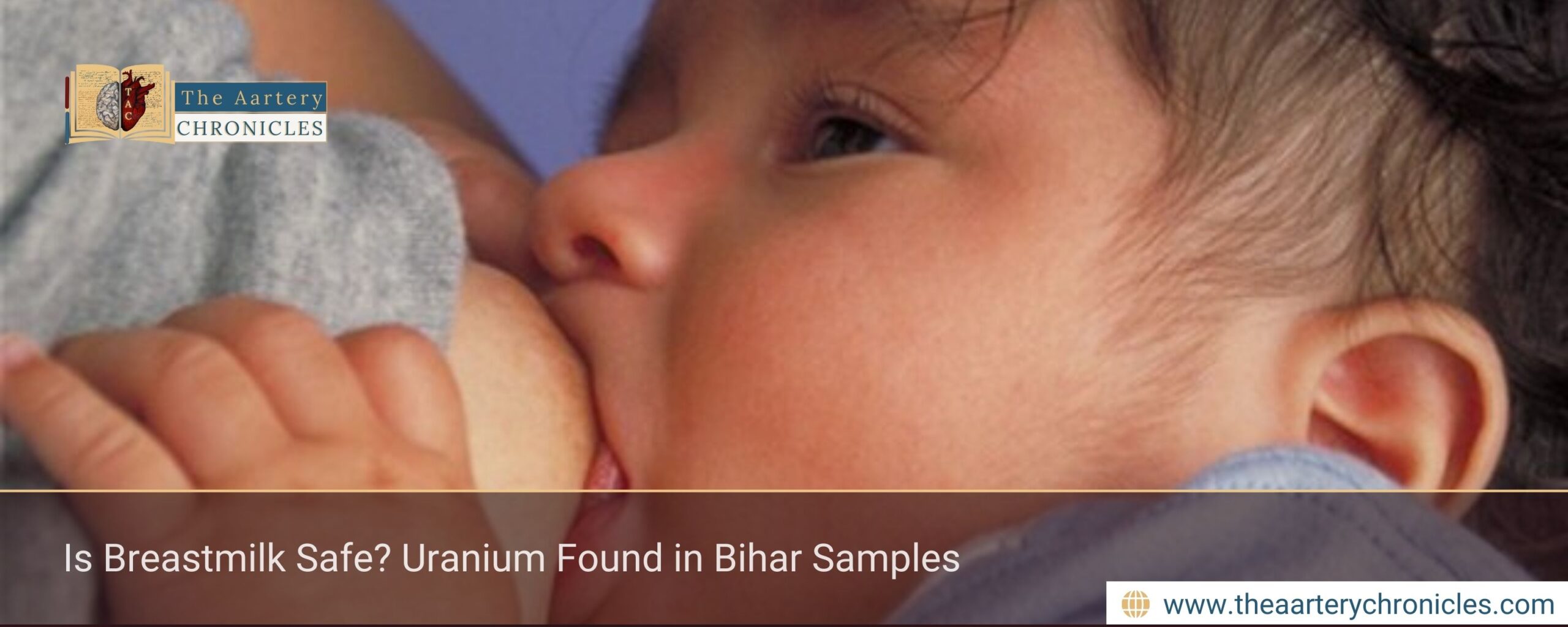

Is Breastmilk Safe? Uranium Found in Bihar Samples
A new study investigating uranium found in breastmilk in Bihar has raised concerns about potential health risks for infants. Researchers detected uranium (U-238) in breastmilk samples from all 40 lactating women included in the study. Experts emphasise that the measured levels remain within acceptable international limits. Still, the findings highlight the need for closer monitoring of environmental contaminants in the state.
Uranium Levels Detected Across Multiple Districts
According to the research team, which included specialists from AIIMS Delhi, the breastmilk samples showed uranium concentrations ranging from 0 to 5.25 µg/L. The highest district-wide average was found in Khagaria, while Katihar recorded the single highest individual value.
Dr Ashok Sharma, a co-author and faculty member at AIIMS Delhi, told ANI that uranium was present in every sample tested. He explained that although 70% of infants had a Hazard Quotient (HQ) above 1, suggesting possible non-carcinogenic risks, the absolute uranium levels were still below the WHO-recommended limits for drinking water.
What the Findings Mean for Infant Health
Because babies have immature kidneys and a reduced ability to eliminate heavy metals, the researchers caution that infants are more vulnerable to the effects of uranium. The study notes that long-term exposure could potentially impact:
- Kidney growth and function
- Early brain and neurological development
- Cognitive outcomes, including learning and IQ
However, Dr Sharma clarified that the actual risk to infants is likely low because most uranium absorbed by mothers is excreted in urine rather than concentrated in breastmilk.
Breastfeeding Still Strongly Recommended
Despite the identification of uranium found in breastmilk in Bihar, the research team stresses that breastfeeding continues to be the safest and most beneficial feeding method for infants. Dr Sharma emphasised that breastfeeding should only be paused or stopped if there is a clear medical indication.
He added that the purpose of the study is not to discourage breastfeeding but to highlight the need for environmental risk assessment and improved water safety across affected regions.
Uranium in Groundwater: A Wider Issue
Uranium is a naturally occurring element found in rocks such as granite. It can enter groundwater due to:
- Natural geological processes
- Mining and industrial activities
- Burning of coal
- Use of phosphate-containing fertilisers
India has documented uranium contamination in 151 districts across 18 states, with Bihar reporting contamination in 1.7% of its groundwater sources.
Globally, elevated uranium levels in water have also been reported in countries such as Canada, the US, Sweden, Finland, Bangladesh, and Pakistan. However, consistent clinical symptoms linked to exposure are not always seen.
Future Studies on Other Contaminants
The research team plans to expand its investigations to other states and study additional toxic substances. Dr Sharma noted that earlier work had already detected arsenic, lead, and mercury in breastmilk, and future studies will assess exposure to pesticides and other environmental pollutants.
He stressed that regular biomonitoring is essential to identify contamination sources and protect maternal and child health.
Conclusion
The findings on uranium found in breastmilk in Bihar serve as an early warning for policymakers and health authorities. They underscore the importance of:
- Testing groundwater quality
- Tracking environmental pollutants
- Protecting vulnerable populations, especially infants
Although the present risk appears limited, the study reinforces the need for urgent monitoring and preventive measures to ensure long-term safety for mothers and young children.
Source: Inputs from various media Sources
I’m a pharmacist with a strong background in health sciences. I hold a BSc from Delhi University and a pharmacy degree from PDM University. I write articles and daily health news while interviewing doctors to bring you the latest insights. In my free time, you’ll find me at the gym or lost in a sci-fi novel.
- Priya Bairagi
- Health News and Updates,People Forum
- 24 November 2025
- 15:00








